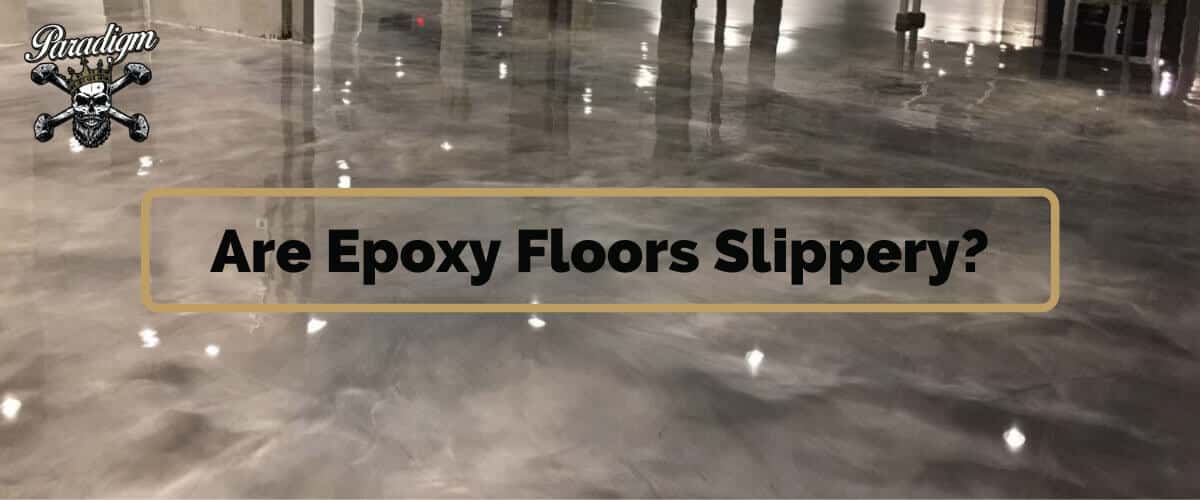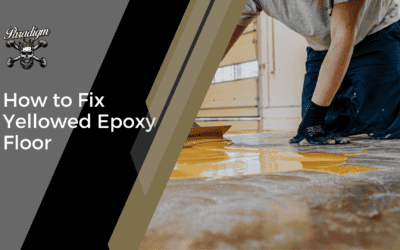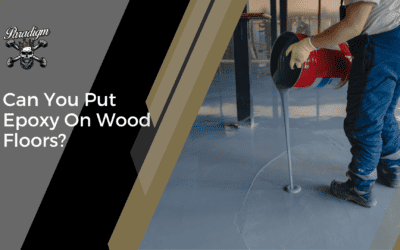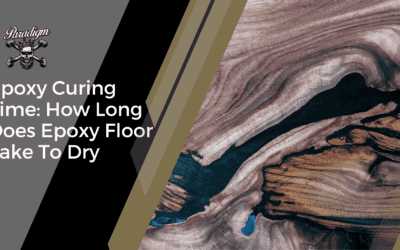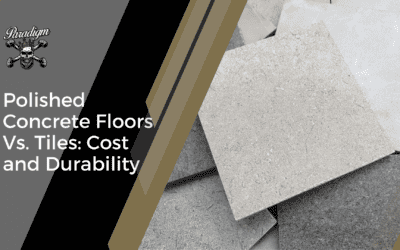By nature, epoxy floors are not slippery. But there are slip additives that can make the floors completely slip-resistant if that’s what you need. The surface of epoxy floors is usually smooth so when water gets on them, it’s possible for them to be slippery because there is nowhere for the water to go. Slip and fall accidents are something that lots of business owners are concerned about, and rightfully so.
We always say, better to pay for a good floor then a really good lawyer! No offense to the great lawyers out there.
In this article, we go over the ways that we make epoxy floors less slippery and also let you know how you can upgrade your epoxy floors so that you don’t have to worry about any liability.
Table of Contents
Why Are Your Floors Slippery?
Epoxy, polyurethane and polyurea are non-porous in nature which means when they are applied there are no holes and nothing to create traction. Essentially, there is nowhere for the water to go. This is one of the reasons that epoxy is an awesome chemical coating to use on floors but it can make them very slippery if they are applied over a completely level surface without flakes or anything else if they get moisture on them. The epoxy surface is fine when dry, but can cause accidents if a drink, oil, chemical or other liquid spills on the floor coating. The first thing to determine is if you need a non-slip additive at all and then show the options for how to implement the floor to make it slip-resistant.
Similar article: How to fix a bad concrete stain job.
GET A FREE ESTIMATE!
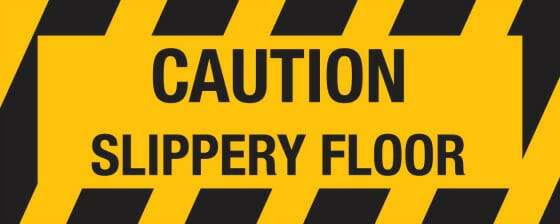
HOW TO USE ANTI-SLIP ADDITIVES FOR EPOXY FLOOR COATINGS
If your epoxy floor is slippery, there are a few different solutions. The first one is to take up all of the epoxy and apply a completely new coating. If that option is out of the budget, there might be other options. Depending on the type of system, you may be able to sand down the top coat. The reason it must be sanded down is because the epoxy coating is non-porous and epoxy will not bond to epoxy if it isn’t porous. So we sand down the top coat. After that we can apply another coating of epoxy but this time with a grit additive such as quartz mixed into the epoxy. This will make the floor hard and also have a level of grit to it.
The quartz or additive of choice for the top coat system is what makes the surface slightly bumpy and ads a non-slip component to the flooring solution.
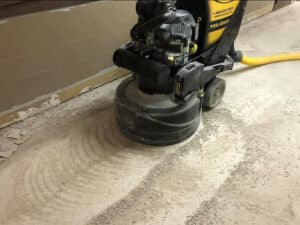
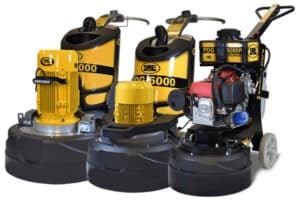
Paradigm Concrete Flooring Experts Can Add A Non-Slip Additive To Your Epoxy Floor
Applying a non-slip additive in a commercial setting is the final step. It’s like being in the world series in the bottom of the 9th with bases loaded. You either get the job done or you go home thinking about it for years to come. Don’t let a slippery epoxy floor cause problems for you forever. Make it a point to research the possible options out there and get pick one that will bring the best results for your floors and is achievable. If unsure of what you are doing, it’s always better to involve professionals who can assess your situation and recommend the best solution. At Paradigm Concrete Finishes, we are more than happy to help you get your dream epoxy garage floor. Reach out to us for free consultation and quotes on your projects.
How to Fix Yellowed Epoxy Floor
Epoxy floors, known for their exceptional durability and ability to withstand heavy traffic and chemical spills, have gained immense popularity in garage flooring. Homeowners opt for epoxy floors as a long-lasting and low-maintenance solution. However, over time,...
Can You Put Epoxy On Wood Floors?
If you're considering giving your wood floors a new, durable finish, epoxy might be a solution that has caught your attention. Epoxy has become increasingly popular as a versatile and long-lasting coating for various surfaces, including countertops, tabletops, and...
Epoxy Curing Time: How Long Does Epoxy Floor Take To Dry
Epoxy is a common choice for residential, commercial, and industrial spaces due to its exceptional durability and aesthetic versatility. It is a type of coating that is applied over concrete floors to create a glossy, seamless, and easy-to-maintain surface. When...

